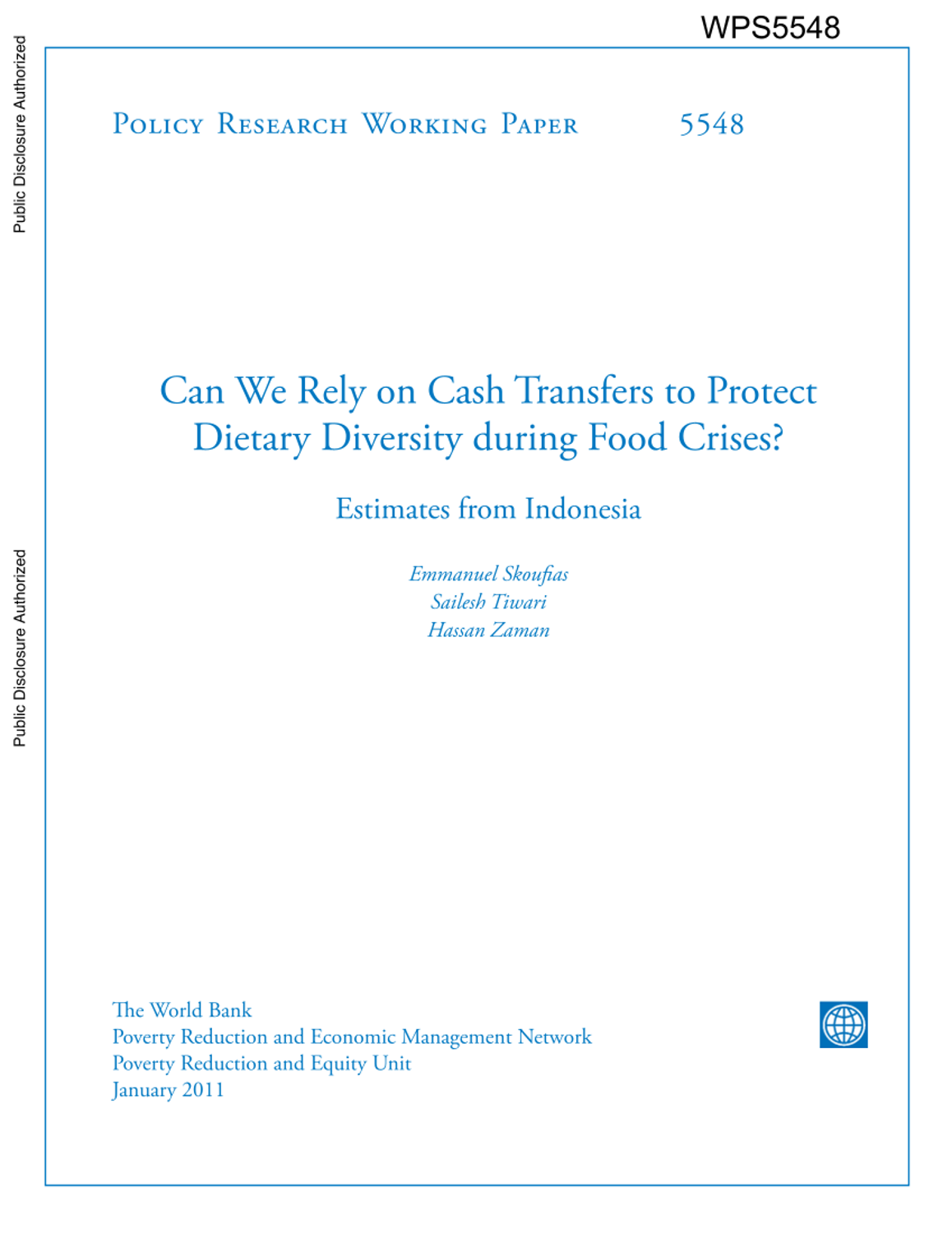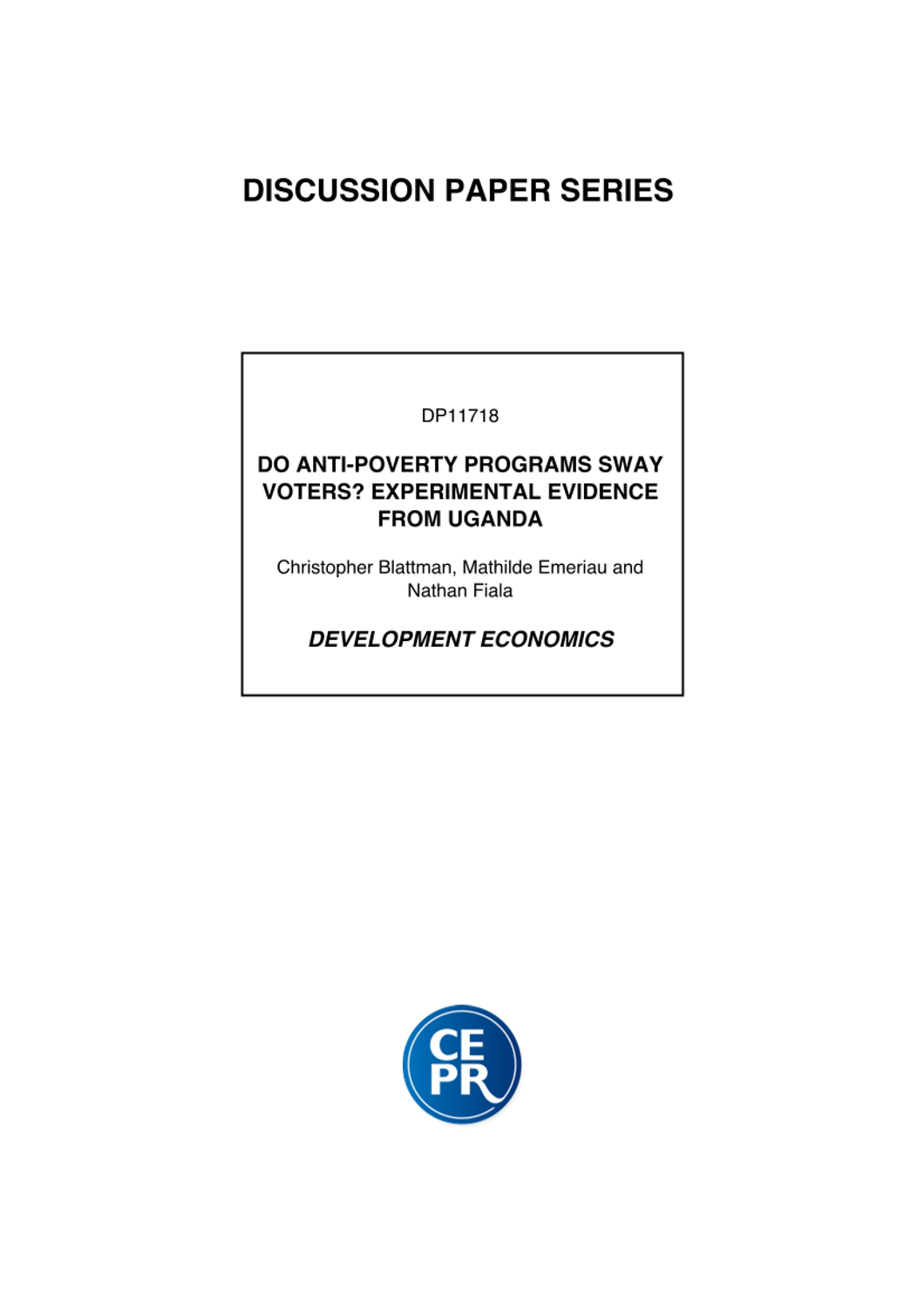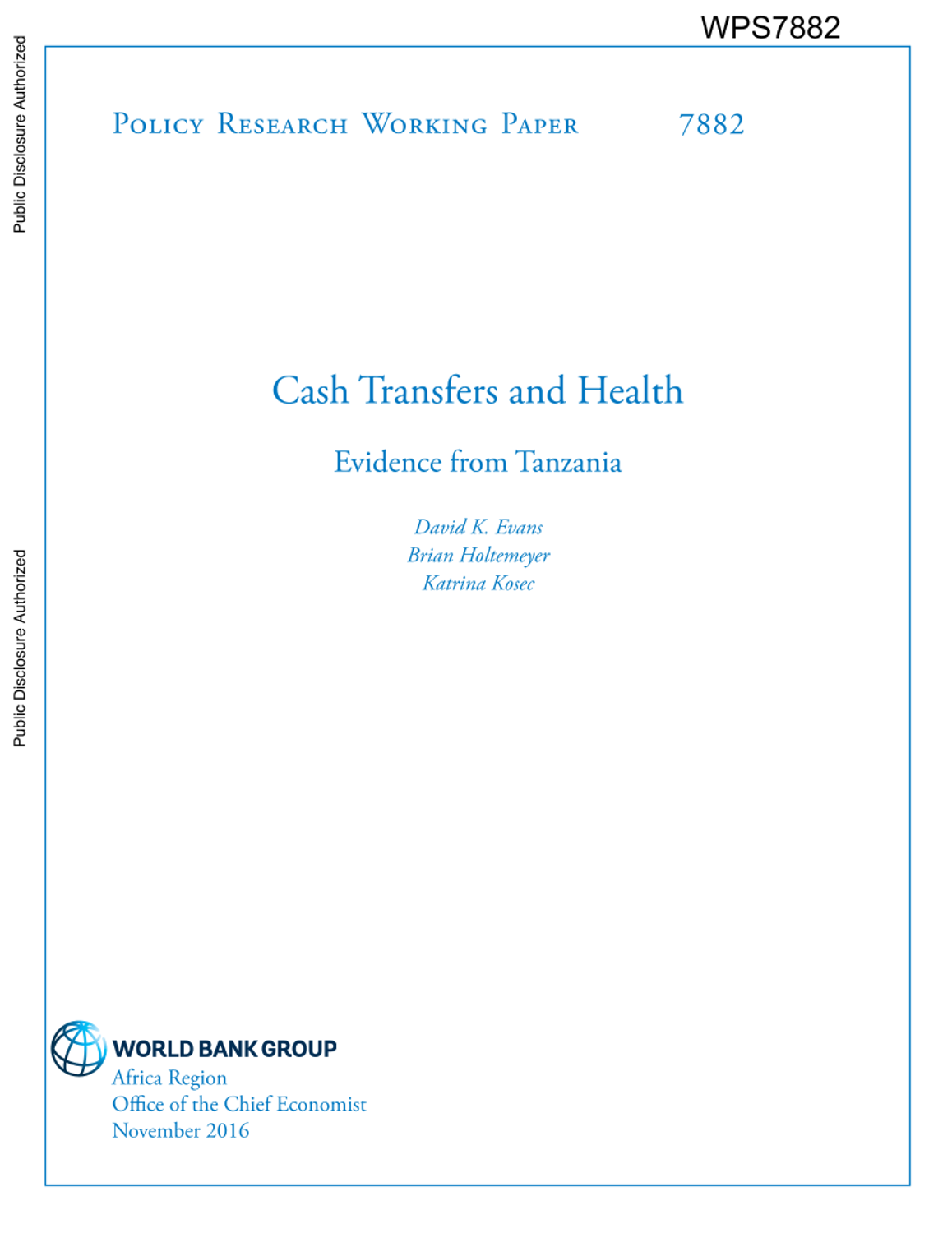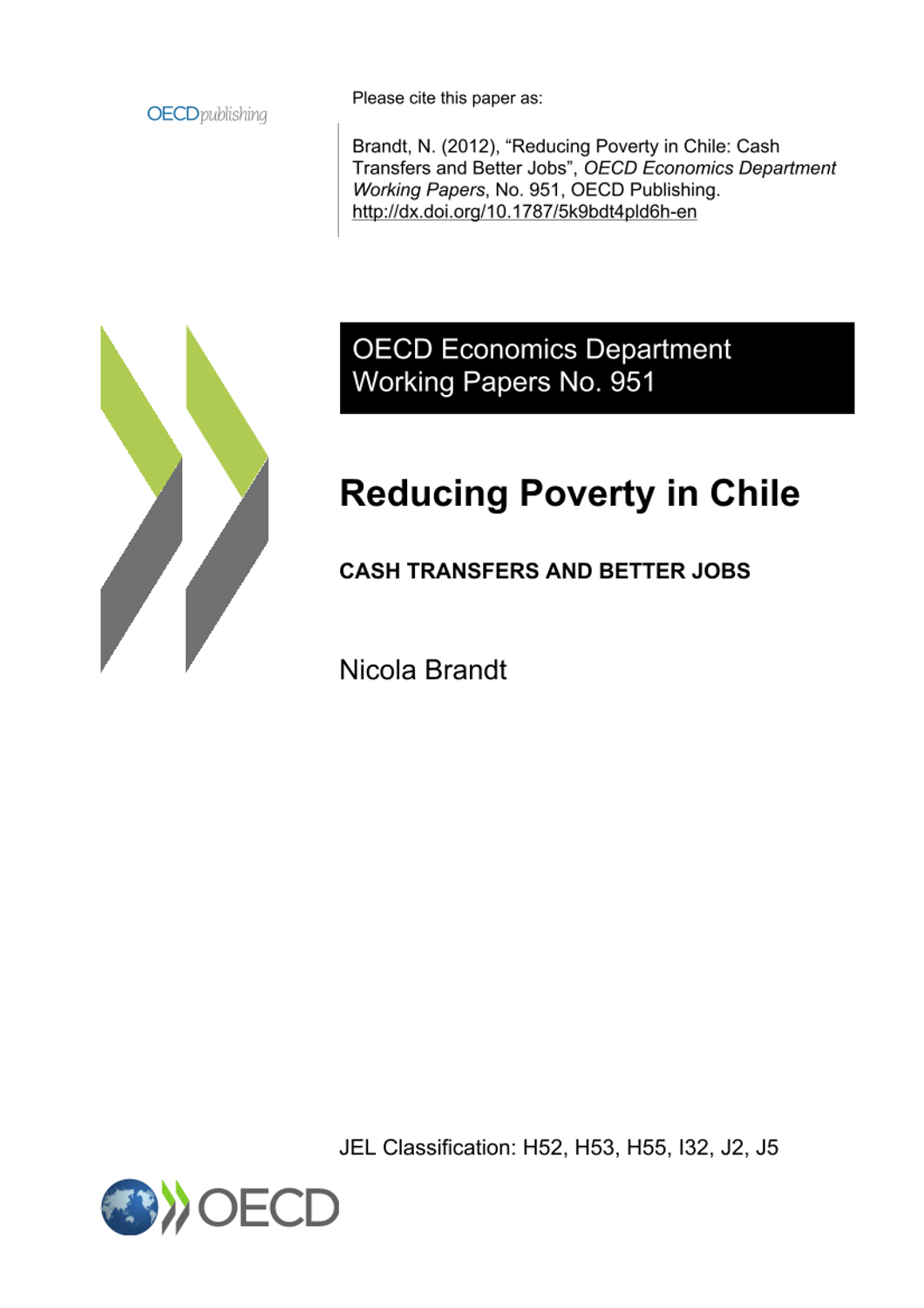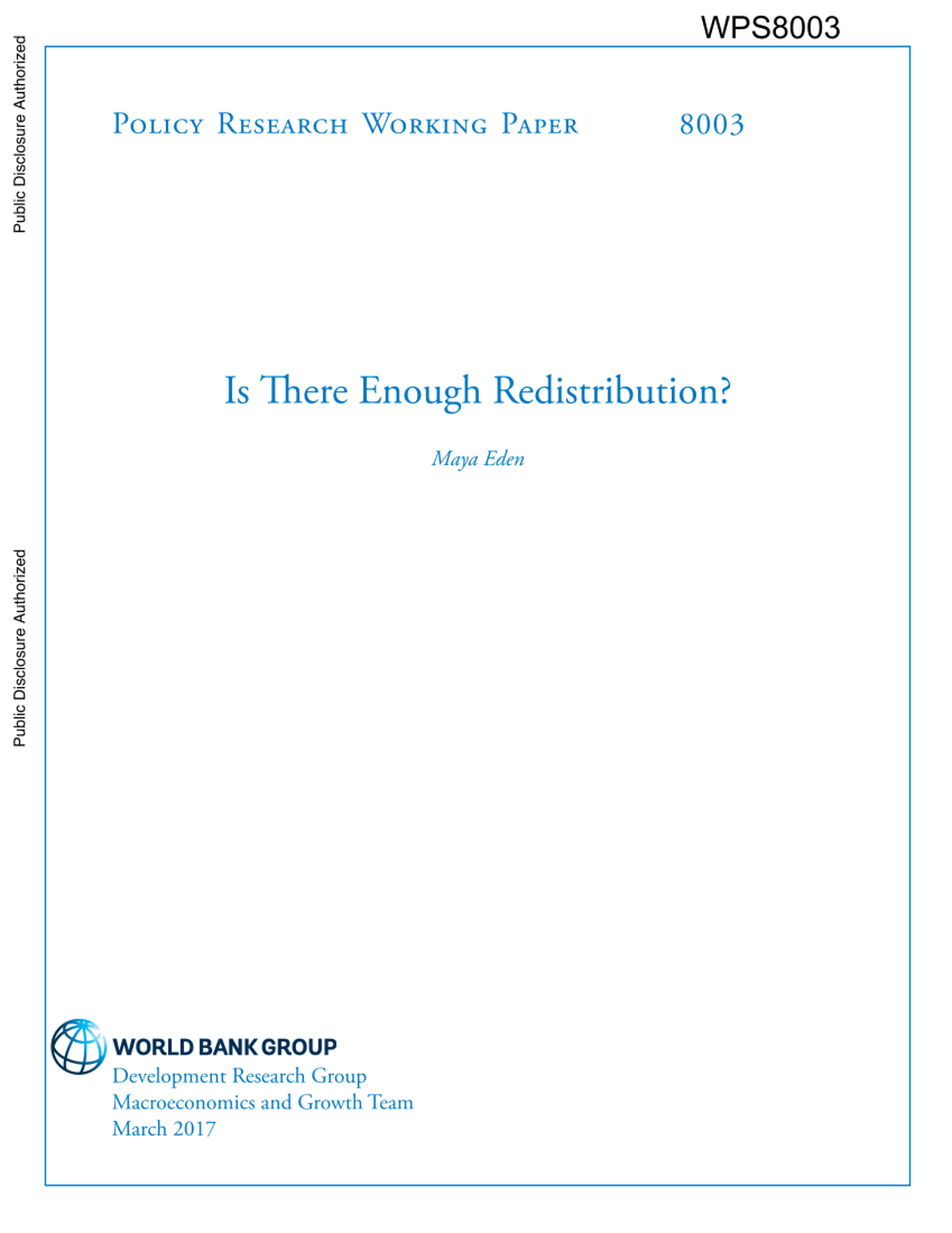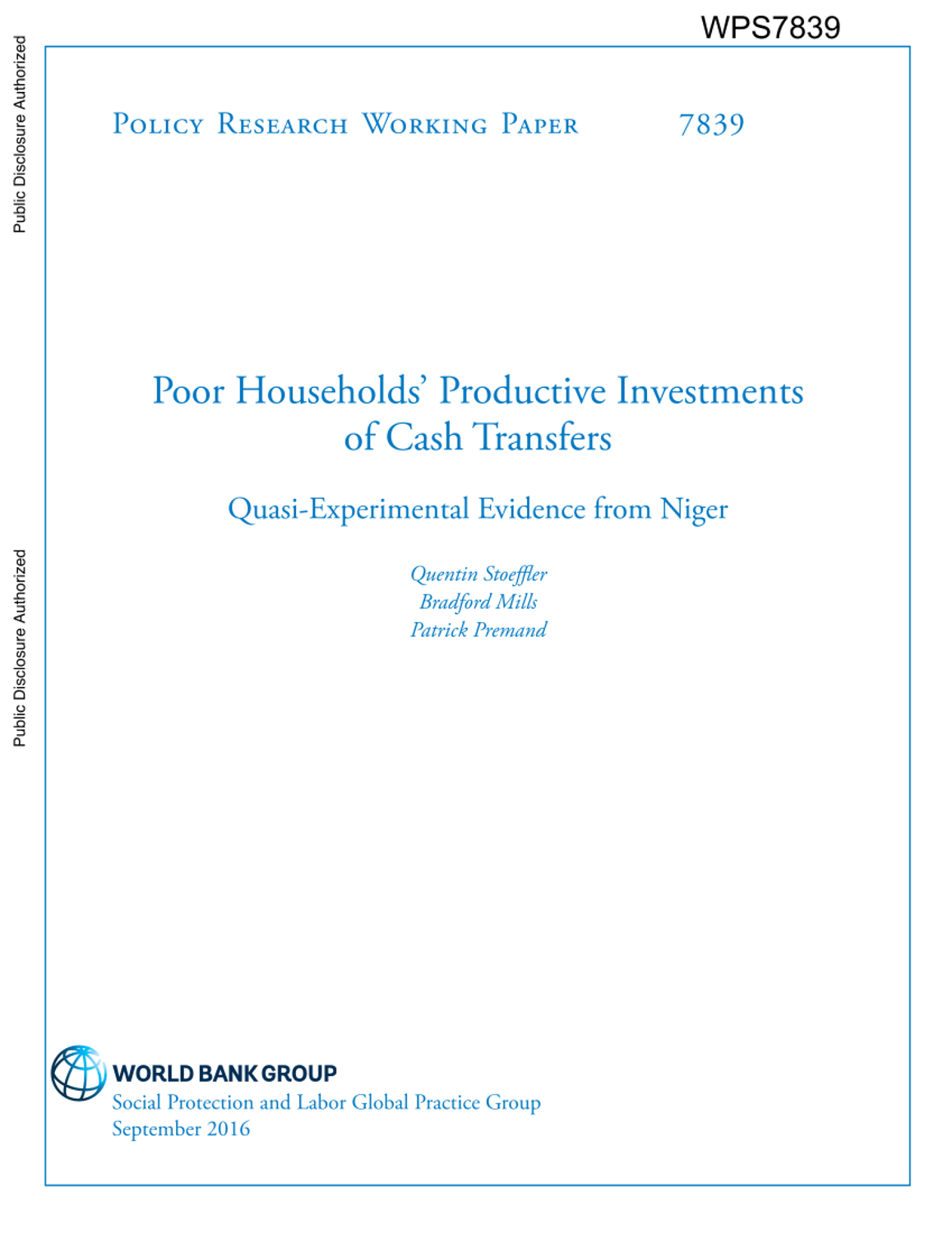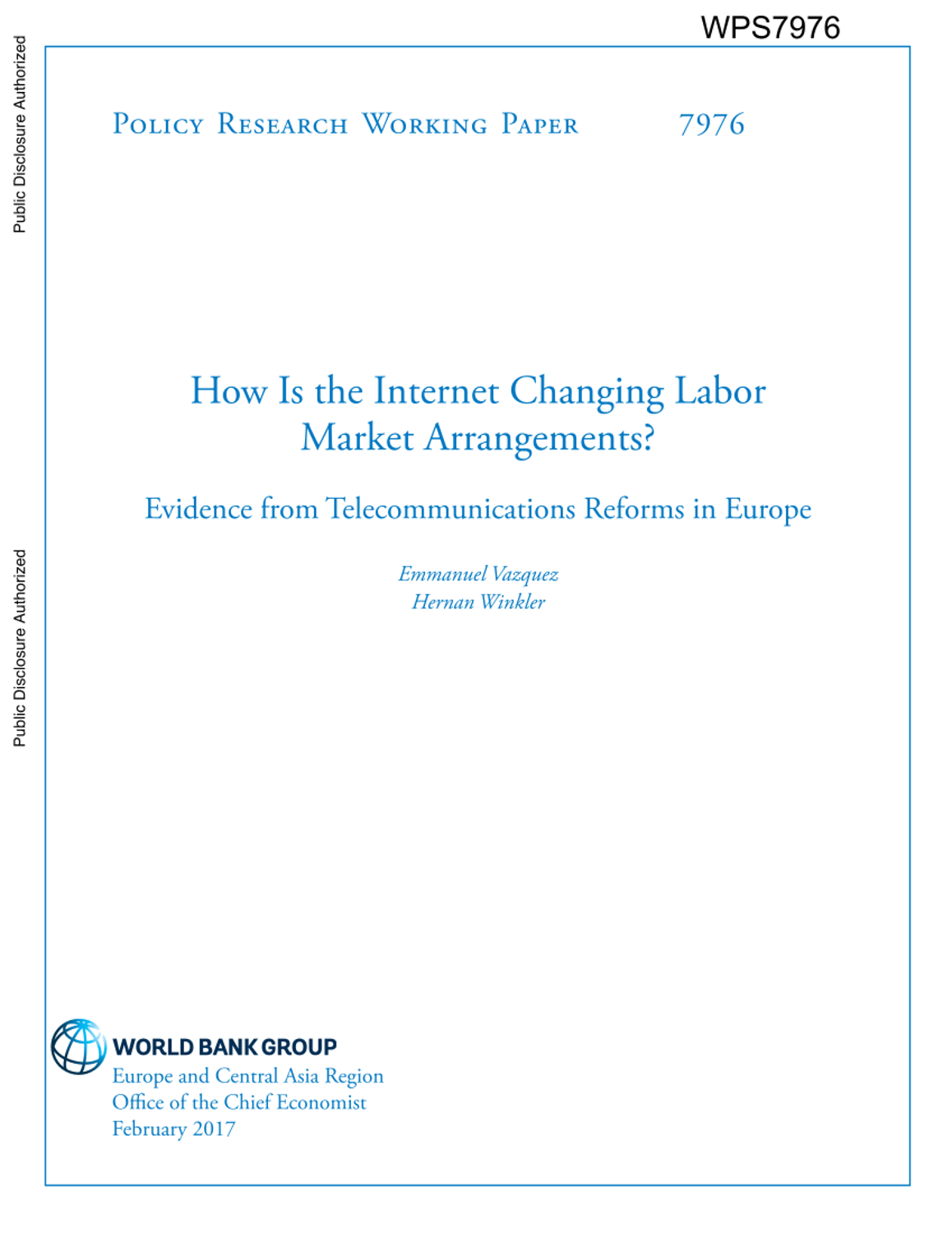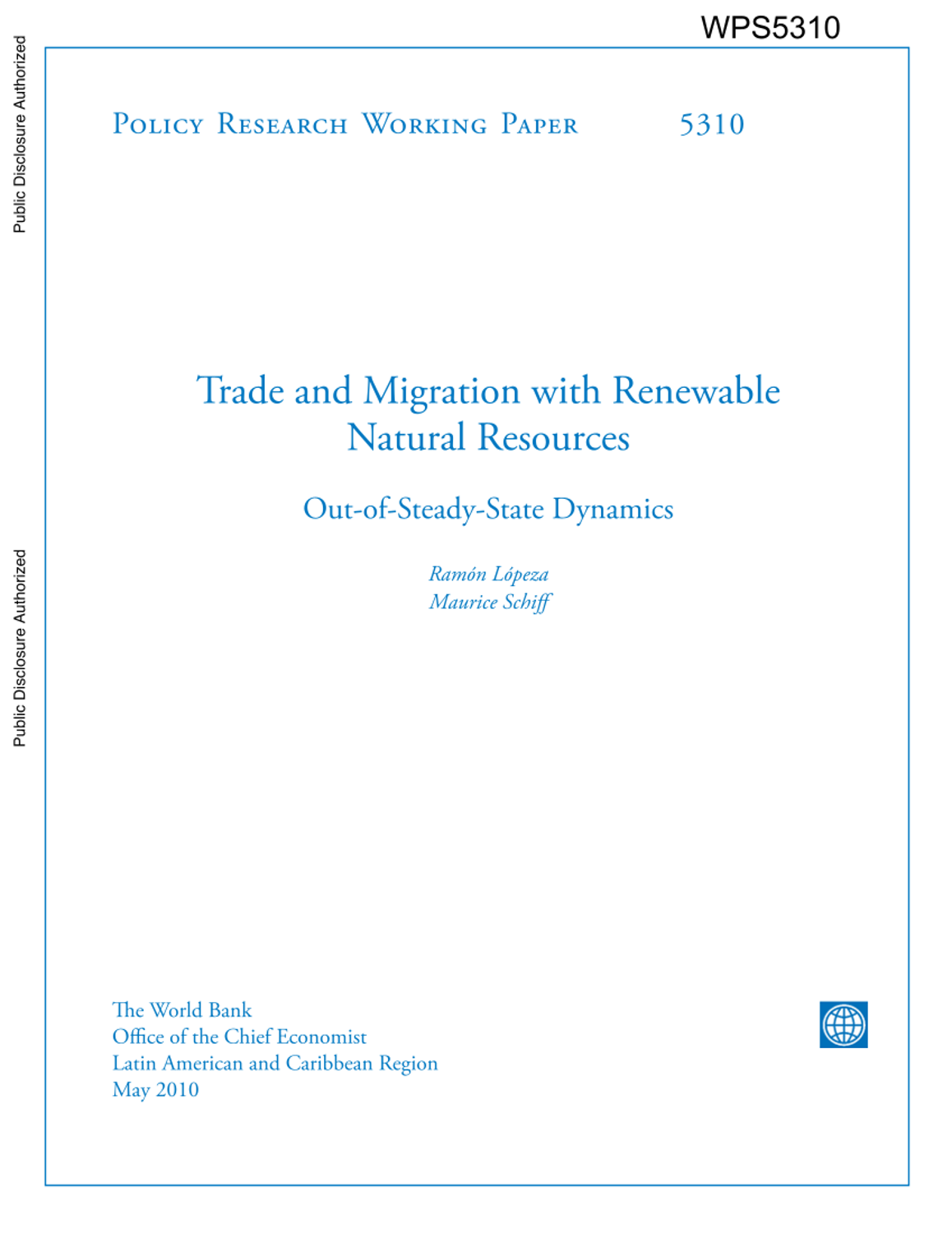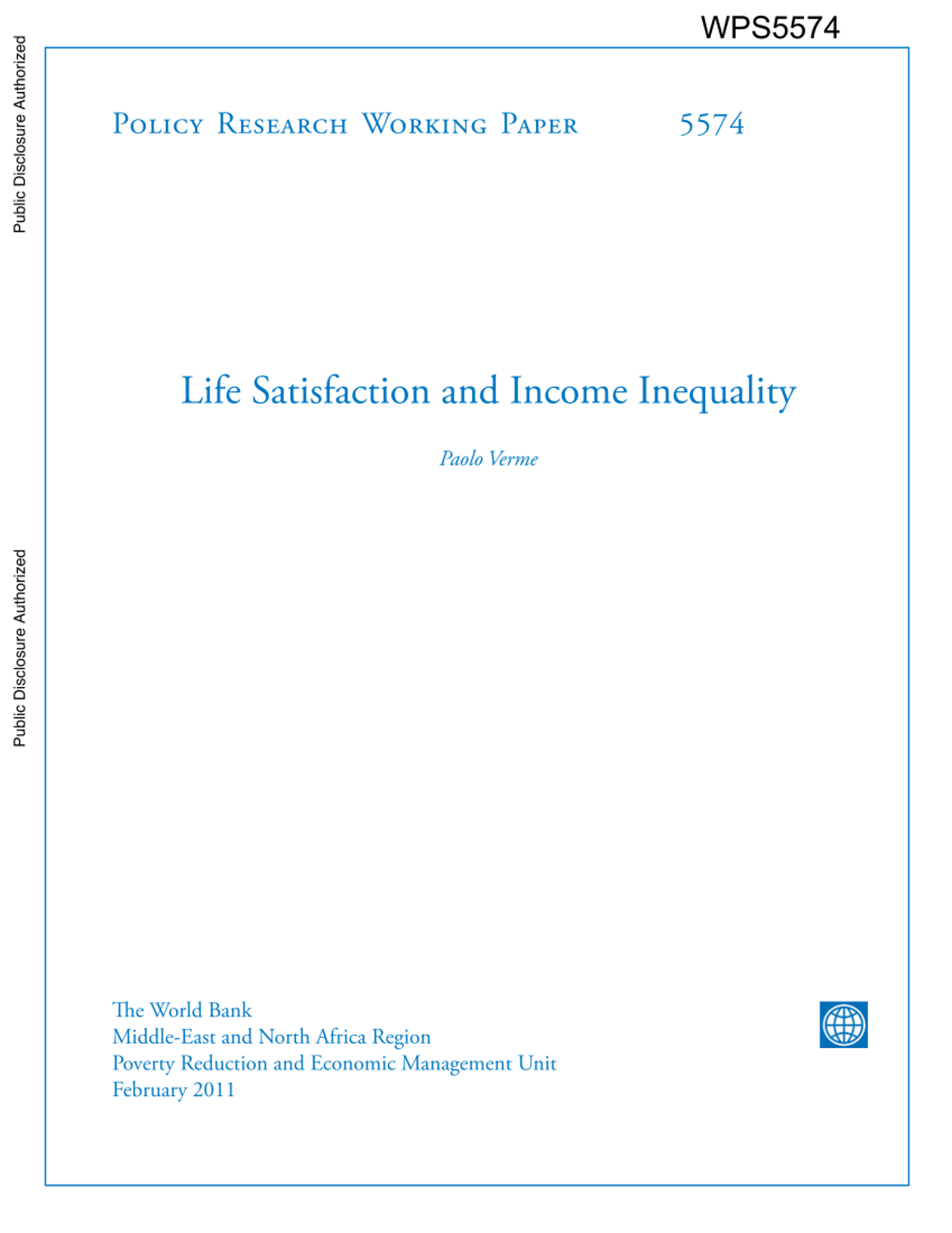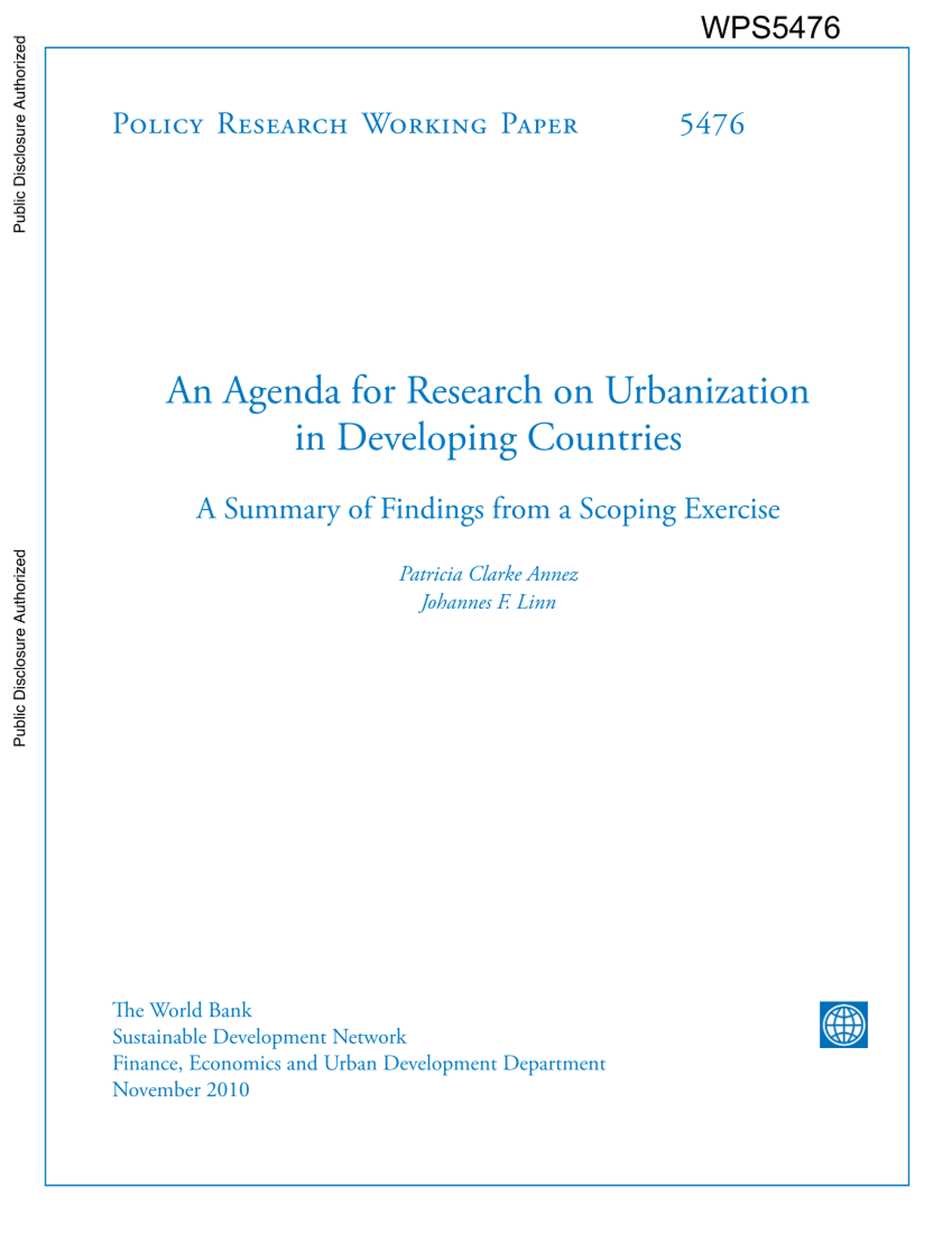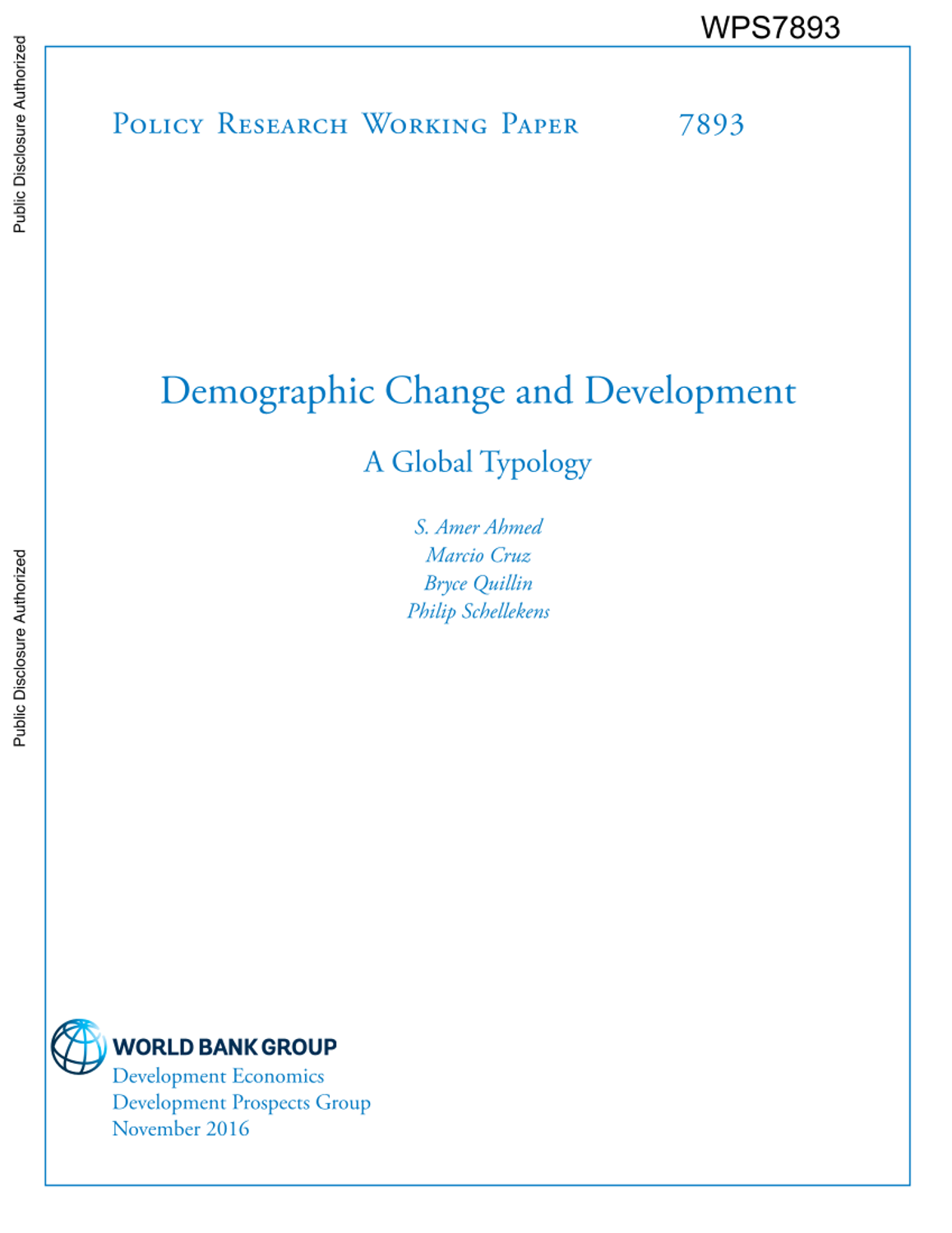연구보고서World Bank Policy Research Working Paper 5548
Can we rely on cash transfers to protect dietary diversity during food crises ? estimates from Indonesia
- 청구기호
- WPS 5548
- 발행사항
- Washington,D.C : World Bank, 2011
- 형태사항
- 38 p. :. PDF file ;. 723 KB
- 바로가기
소장정보
| 위치 | 등록번호 | 청구기호 / 출력 | 상태 | 반납예정일 |
|---|---|---|---|---|
이용 가능 (1) | ||||
| E0001347 | 대출가능 | - | ||
이용 가능 (1)
- 등록번호
- E0001347
- 상태/반납예정일
- 대출가능
- -
- 위치/청구기호(출력)
책 소개
The 2008 "food price crisis" and more recent spikes in food prices have led to a greater focus on policies and programs to cushion their impact on poverty and malnutrition. Estimating the income elasticity of micro-nutrients and assessing how they change during such crises is an important part of the policy debate as it affects the effectiveness of cash transfer and nutritional supplementation programs. This paper assesses these issues using data from two cross-sectional household surveys in Indonesia carried out before and soon after the 1997/98 economic crisis, which led to a sharp increase in food prices. First, the authors examine how the income elasticity of the starchy staple ratio differs between the two survey rounds using non-parametric as well as regression methods. Second, they provide updated estimates of the income elasticity for important nutrients in Indonesia. The analysis finds that (i) summary measures such as the income elasticity of the starchy staple ratio may not change during crises but this masks important differences across specific nutrients; (ii) methods matter -- the ordinary least squares estimates for the income elasticity of micro-nutrients are likely to be misleading due to measurement error bias; (iii) controlling for measurement error, the income elasticity of some key micro-nutrients, such as iron, calcium, and vitamin B1, is significantly higher in the crisis year compared with a normal year; and (iv) the income elasticity for certain micro-nutrients -- vitamin C in this case -- remains close to zero. These results suggest that cash transfer programs may be even more effective during crises to protect the consumption of many essential micro-nutrients compared with non-crisis periods but in order to ensure that all micro-nutrients are consumed, specific nutritional supplementation programs are also likely to be required.

